 social perception and social reality 00-Jussim-FM.indd i 2/1/2012 11:09:57 AM This page intentionally left blank Social Perception and Social Reality W H Y AC C U R AC Y D O M I N AT E S B I A S A N D S E L F - F U L F I L L I N G P R O P H E C Y Lee Jussim 00-Jussim-FM.indd iii 2/1/2012 11:09:57 AM Oxford University Press, Inc., publishes works that furtherOxford Universitys objective of excellencein research, scholarship, and education. Oxford New York Auckland Cape Town Dar es Salaam Hong Kong Karachi Kuala Lumpur Madrid Melbourne Mexico City Nairobi New Delhi Shanghai Taipei Toronto With offi ces in Argentina Austria Brazil Chile Czech Republic France Greece Guatemala Hungary Italy Japan Poland Portugal Singapore South Korea Switzerland Th ailand Turkey Ukraine Vietnam Copyright 2012 by Oxford University Press, Inc. Published by Oxford University Press, Inc. 198 Madison Avenue, New York, New York 10016 www.oup.com Oxford is a registered trademark of Oxford University Press, Inc. All rights reserved. No part of this publication may be reproduced, stored in a retrieval system, or transmitted, in any form or by any means, electronic, mechanical, photocopying, recording, or otherwise, without the prior permission of Oxford University Press ________________________________________________________________________________ Library of Congress Cataloging-in-Publication Data Jussim, Lee J. p. cm. cm.
social perception and social reality 00-Jussim-FM.indd i 2/1/2012 11:09:57 AM This page intentionally left blank Social Perception and Social Reality W H Y AC C U R AC Y D O M I N AT E S B I A S A N D S E L F - F U L F I L L I N G P R O P H E C Y Lee Jussim 00-Jussim-FM.indd iii 2/1/2012 11:09:57 AM Oxford University Press, Inc., publishes works that furtherOxford Universitys objective of excellencein research, scholarship, and education. Oxford New York Auckland Cape Town Dar es Salaam Hong Kong Karachi Kuala Lumpur Madrid Melbourne Mexico City Nairobi New Delhi Shanghai Taipei Toronto With offi ces in Argentina Austria Brazil Chile Czech Republic France Greece Guatemala Hungary Italy Japan Poland Portugal Singapore South Korea Switzerland Th ailand Turkey Ukraine Vietnam Copyright 2012 by Oxford University Press, Inc. Published by Oxford University Press, Inc. 198 Madison Avenue, New York, New York 10016 www.oup.com Oxford is a registered trademark of Oxford University Press, Inc. All rights reserved. No part of this publication may be reproduced, stored in a retrieval system, or transmitted, in any form or by any means, electronic, mechanical, photocopying, recording, or otherwise, without the prior permission of Oxford University Press ________________________________________________________________________________ Library of Congress Cataloging-in-Publication Data Jussim, Lee J. p. cm. cm.
Includes bibliographical references and index. ISBN 978-0-19-536660-0 (hardcover) 1. Social perception. 2. Stereotypes (Social psychology) I. Title.
BF323.S63J87 2012 302.12 dc23 2011020796 ________________________________________________________________________________ 9 8 7 6 5 4 3 2 1 Printed in the United States of America on acid-free paper 00-Jussim-FM.indd iv 2/1/2012 11:09:58 AM This book is dedicated to my family: my wife, Lisa Baum, who has not merely been supportive,but with whom conversations about multiculturalism in her practice infl uenced my thinkingabout stereotypes; my daughter Rachel, whose righteous indignation at social scientistsresistance to scientifi c evidence right in fr ont of their noses has been an ongoing inspiration forme; my daughter Kayla, whose spunk and resilience in the face of extraordinary difficulties isits own constant source of inspiration for me; and to my son Josh, for giving me numerousopportunities to discover that his very multi-cultural set of fr iends are not remotely threatenedby talking about ethnic and cultural diff erences between groups and, in fact, generally enjoysuch discussions. 00-Jussim-FM.indd v 2/1/2012 11:09:58 AM This page intentionally left blank Acknowledgments many of the ideas in the book are so outside the mainstream of normal social science claims, that it is perhaps more obvious than usual that any errors, misinterpretations, misrep resentations, and the like are entirely my own. For example, this book spends 6 chapters arguing that the eff ects of expectations are typically overstated and, rather than being power ful and pervasive, are weak, fragile, and fl eeting. It spends 3 chapters arguing that there is far more evidence of accuracy than most social psychologists acknowledge. It spends 5 chapters arguing that stereotypes are typically quite accurate, typically used in a manner that is rea sonable and more or less rational, and that it is social psychological perspectives emphasizing stereotype inaccuracy that are exaggerated, unjustifi ed, and irrationally resistant to change. One can fi nd vanishingly few psychologists of any stripes presenting such claims, so that one can be assured that any errors in making or justifying them are entirely my own. Although they bear no responsibility whatsoever for any of the claims that appear through out the book, several people have been immensely helpful in preventing me from making claims that even I would consider unjustifi ed.
I am deeply grateful for critiques and com mentary received on one or more chapters from David Funder, Bill von Hippel, David Kenny, Joachim Krueger, Clark McCauley, Richard Nisbett, Charles Stangor, and Bill Swann. I (and this book) have also benefi tted from correspondences with Alice Eagly, Sam Gosling, Judy Hall, C. Neil Macrae, Beth Morling, Michael Norton, Stephen Raudenbush, Carey Ryan, and Sam Sommers. Th is book took so long to write that, while still in progress, I extracted core ideas from and have published them elsewhere ( Advances in Experimental Social Psychology,Person ality and Social Psychology Review, and the Handbook of Stereotypes, Prejudice, andDiscrimination ). Th e critical comments provided by anonymous reviews, and by Bill Ickes, Todd Nelson, and Mark Zanna regarding those published pieces were then fed back to improve the chapters in this book. I am very grateful for those thoughtful and cogent comments.
Th is book is, in part, a scholarly and intellectual (rather than political) polemic. Th e dic tionary defi nition of polemic is: a controversial argument, as one against some opinion, doc trine, etc. Th is book defi nitely argues against the pervasive view among social cognition scholars that human social judgment is dominated by bias; and it even argues against the pervasive doctrine in psychology and other social sciences that stereotypes are inaccurate 00-Jussim-FM.indd vii 2/1/2012 11:09:58 AM viii Acknowledgments and irrational. As such, I must also thank all those scholars who have promoted and advocated the view of human social cognition as deeply fl awed and steeped in error and biaswithout them, I would have had no reason to write this book. Of course, the book does not mostly argue against anythingit mostly argues for a view of human social thinking as generally nicely in touch with social reality and, generally, sub ject to biases that, though real, are readily reduced or eliminated. Although my own original research constitutes a tiny fraction of that reported in this book, much of that research was conducted with Jacque Eccles and Stephanie Madon, collaborations for which I am deeply grateful.
Last, I must thank the Hillsborough Diner in NJ, where I wrote most of this book, for allowing me to sit and write for many hours at a time, despite only spending a few bucks at a pop for breakfast or lunch. 00-Jussim-FM.indd viii 2/1/2012 11:09:58 AM Contents 00-Jussim-FM.indd ix 2/1/2012 11:09:58 AM x Contents 00-Jussim-FM.indd x 2/1/2012 11:09:58 AM 01-Jussim-Ch01.indd 1 1/28/2012 12:22:47 PM This page intentionally left blank is the glass half full or half empty? As everyone knows, the optimist says half full; the pessimist says half empty. I both love and hate this parable. I love it because it is a terrifi c metaphor for social perception (how people perceive, judge, evaluate, and understand other people). Are the optimist and pessimist seeing the same glass or a diff erent glass? Th e way they describe the glass is quite diff erent. Furthermore, their emotional reactions to the full ness of the glass are probably quite diff erent.
Optimist: Lord, its great to have a half-full glass! Pessimist: I cant believe all I can get is a half-empty glass. However, if one looks underneath their tone and their emotions, they are seeing the exactsame objective glass. Th e parable is NOT Th e glass is half full, but the optimist sees it as 90 % full and the pessimist sees it as 10 % full. If that were the case, their respective demeanors would be infl uencing not merely their respective reactions to the fullness of the glass, but their perceptions of the objective degree of fullness. Is there a deep and true message here? If so, that message would seem to be that, although our predispositions, demeanors, and expectations can sometimes infl uence our reactions to events in the world, they do not have much infl uence on how we perceive the objective char acteristics of the events themselves. In this sense, then, the parable is in sharp confl ict with many social science and social psychological researchers, who do indeed oft en claim that our beliefs and expectations powerfully infl uence and distort our perceptions of objective social reality. Th e fi rst several chapters of this book document the extraordinary extent to which social scientists have emphasized the power of beliefs to alter not only our perceptions of social reality but also that reality itself.
Next page
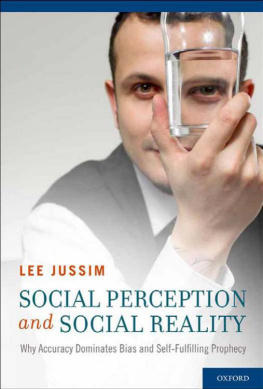


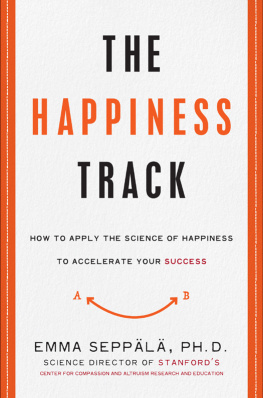
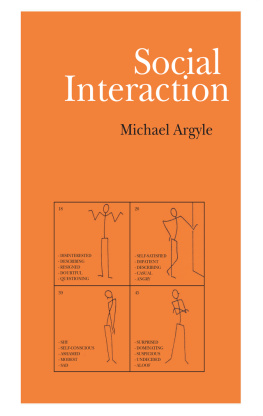
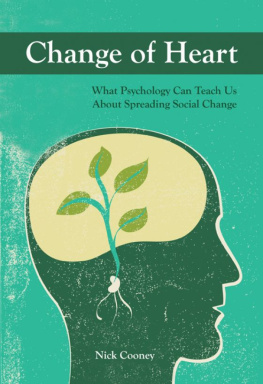
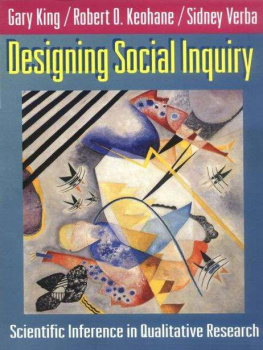
 social perception and social reality 00-Jussim-FM.indd i 2/1/2012 11:09:57 AM This page intentionally left blank Social Perception and Social Reality W H Y AC C U R AC Y D O M I N AT E S B I A S A N D S E L F - F U L F I L L I N G P R O P H E C Y Lee Jussim 00-Jussim-FM.indd iii 2/1/2012 11:09:57 AM Oxford University Press, Inc., publishes works that furtherOxford Universitys objective of excellencein research, scholarship, and education. Oxford New York Auckland Cape Town Dar es Salaam Hong Kong Karachi Kuala Lumpur Madrid Melbourne Mexico City Nairobi New Delhi Shanghai Taipei Toronto With offi ces in Argentina Austria Brazil Chile Czech Republic France Greece Guatemala Hungary Italy Japan Poland Portugal Singapore South Korea Switzerland Th ailand Turkey Ukraine Vietnam Copyright 2012 by Oxford University Press, Inc. Published by Oxford University Press, Inc. 198 Madison Avenue, New York, New York 10016 www.oup.com Oxford is a registered trademark of Oxford University Press, Inc. All rights reserved. No part of this publication may be reproduced, stored in a retrieval system, or transmitted, in any form or by any means, electronic, mechanical, photocopying, recording, or otherwise, without the prior permission of Oxford University Press ________________________________________________________________________________ Library of Congress Cataloging-in-Publication Data Jussim, Lee J. p. cm. cm.
social perception and social reality 00-Jussim-FM.indd i 2/1/2012 11:09:57 AM This page intentionally left blank Social Perception and Social Reality W H Y AC C U R AC Y D O M I N AT E S B I A S A N D S E L F - F U L F I L L I N G P R O P H E C Y Lee Jussim 00-Jussim-FM.indd iii 2/1/2012 11:09:57 AM Oxford University Press, Inc., publishes works that furtherOxford Universitys objective of excellencein research, scholarship, and education. Oxford New York Auckland Cape Town Dar es Salaam Hong Kong Karachi Kuala Lumpur Madrid Melbourne Mexico City Nairobi New Delhi Shanghai Taipei Toronto With offi ces in Argentina Austria Brazil Chile Czech Republic France Greece Guatemala Hungary Italy Japan Poland Portugal Singapore South Korea Switzerland Th ailand Turkey Ukraine Vietnam Copyright 2012 by Oxford University Press, Inc. Published by Oxford University Press, Inc. 198 Madison Avenue, New York, New York 10016 www.oup.com Oxford is a registered trademark of Oxford University Press, Inc. All rights reserved. No part of this publication may be reproduced, stored in a retrieval system, or transmitted, in any form or by any means, electronic, mechanical, photocopying, recording, or otherwise, without the prior permission of Oxford University Press ________________________________________________________________________________ Library of Congress Cataloging-in-Publication Data Jussim, Lee J. p. cm. cm.